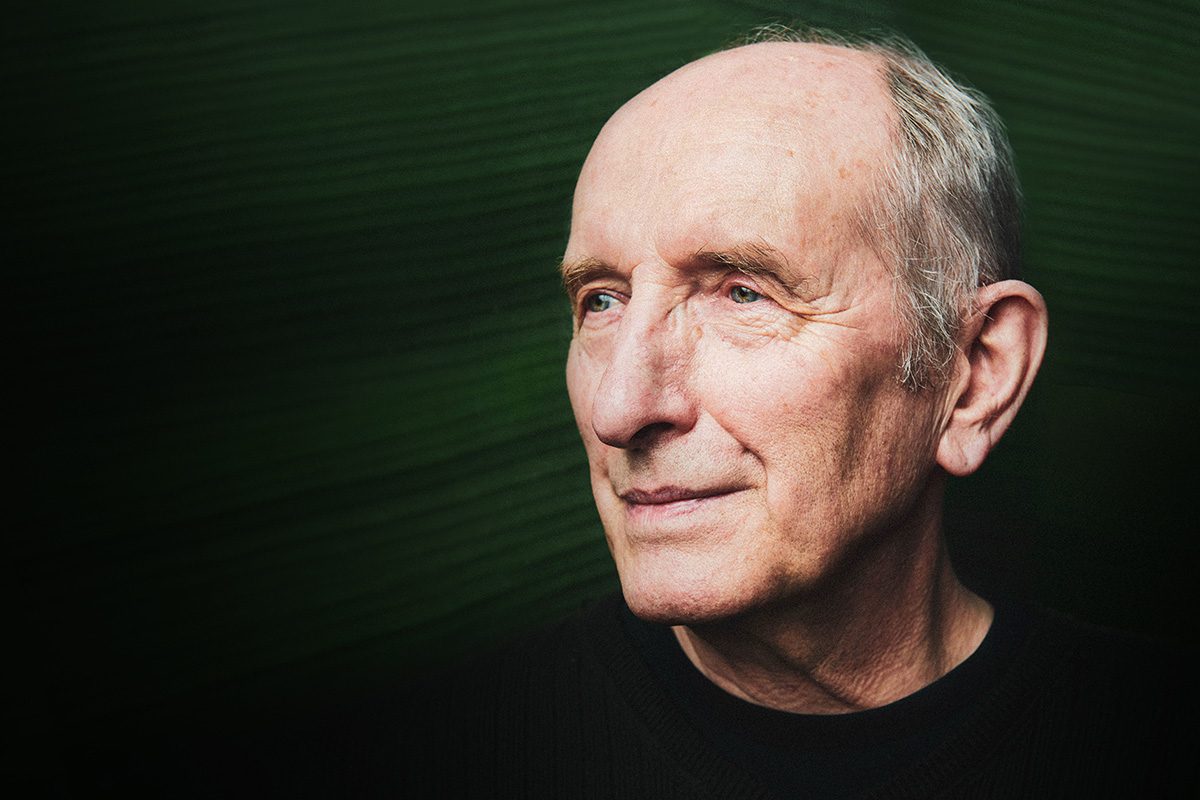
Vaclav Smil. // Photo from David Lipnowski
The Guardian: Vaclav Smil: ‘Growth must end. Our economist friends don’t seem to realise that’
Vaclav Smil is a distinguished professor emeritus in the faculty of environment at the University of Manitoba in Winnipeg, Canada. Over more than 40 years, his books on the environment, population, food and energy have steadily grown in influence. He is now seen as one of the world’s foremost thinkers on development history and a master of statistical analysis. Bill Gates says he waits for new Smil books the way some people wait for the next Star Wars movie. The latest is Growth: From Microorganisms to Megacities.
You are the nerd’s nerd. There is perhaps no other academic who paints pictures with numbers like you. You dug up the astonishing statistic that China has poured more cement every three years since 2003 than the US managed in the entire 20th century. You calculated that in 2000, the dry mass of all the humans in the world was 125m metric tonnes compared with just 10m tonnes for all wild vertebrates. And now you explore patterns of growth, from the healthy development of forests and brains to the unhealthy increase in obesity and carbon dioxide in the atmosphere. Before we get into those deeper issues, can I ask if you see yourself as a nerd?
Not at all. I’m just an old-fashioned scientist describing the world and the lay of the land as it is. That’s all there is to it. It’s not good enough just to say life is better or the trains are faster. You have to bring in the numbers. This book is an exercise in buttressing what I have to say with numbers so people see these are the facts and they are difficult to dispute.
Growth is a huge book – almost 200,000 words that synthesise many of your other studies, ranging across the world and exploring far into the past and future. Do you see this as your magnum opus?
I have deliberately set out to write the megabook on growth. In a way, it’s unwieldy and unreasonable. People can take any number of books out of it – economists can read about the growth of GDP and population; biologists can read about the growth of organisms and human bodies. But I wanted to put it all together under one roof so people could see how these things are inevitably connected and how it all shares one crystal clarity: that growth must come to an end. Our economist friends don’t seem to realise that.
I first came across your work while I was writing a book about the Chinese environment. Time and again, you had the data that I was looking for – and it often revealed how dubious many of the official statistics were. You have been described as a “slayer of bullshit”. Is that your goal?
I was brought up in Czechoslovakia during the era of the Soviet bloc. Having spent 26 years of my life in the evil empire, I do not tolerate nonsense. I grew up surrounded by commie propaganda – the bright tomorrow, the great future of mankind – so I’m as critical as they come. It’s not my opinion. These are the facts. I don’t write opinion pieces. I write things that are totally underlined by facts.
You debunk overly rosy projections by techno-optimists, who say we can solve all our problems with smarter computers, and economists, who promise endless capitalist growth. In many countries, the downside of material growth now seems greater than the upside, which leads to what you call “anthropogenic insults to ecosystems”. Is that a fair summary?
Yes, I think so. Without a biosphere in a good shape, there is no life on the planet. It’s very simple. That’s all you need to know. The economists will tell you we can decouple growth from material consumption, but that is total nonsense. The options are quite clear from the historical evidence. If you don’t manage decline, then you succumb to it and you are gone. The best hope is that you find some way to manage it. We are in a better position to do that now than we were 50 or 100 years ago, because our knowledge is much vaster. If we sit down, we can come up with something. It won’t be painless, but we can come up with ways to minimise that pain.
Read the full Guardian story here.






